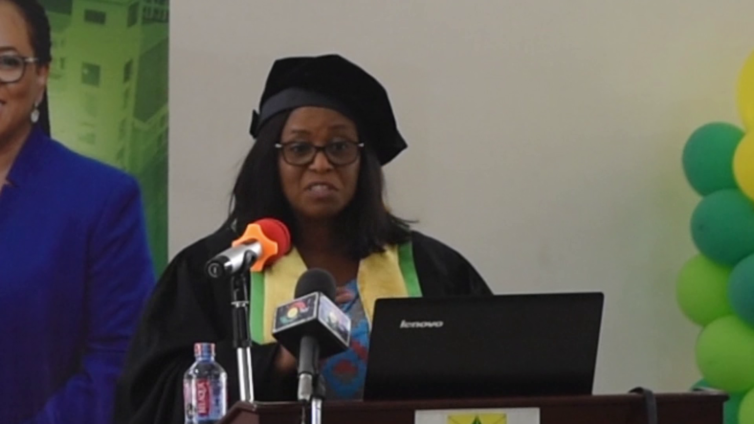The Director of the Centre for Malaria Research, Institute of Health Research at the University of Health and Science, Prof Evelyn Korkor Ansah, has called on Ghanaians to change their mindset and attitudes towards malaria.
According to her, there is a need for the citizenry to actively participate in interventions and programs tailored at eradicating the life-threatening disease.
She said that the use of technology and the malaria vaccine coupled with active community participation and cooperation would see Ghana being certified as a malaria-free country.
Prof. Ansah who had contributed significantly to the fight against malaria was speaking at a UHAS Inaugural Lecture on the topic, Quo Vadis: A Context-Driven Approach to Ending Malaria.
She indicated that 11 African countries including Ghana account for 70% of malaria cases and deaths, while the Africa continent recorded 90% of malaria cases and deaths in 2019.
She further stated that suspected malaria cases form over 41% of reported cases and 18% of admission of confirmed malaria cases in Ghana.
Prof Korkor who underscored that there has been a slight decline in some indicators for malaria called for concerted efforts from the citizenry towards eradicating the life-threatening disease.
“No intervention no matter how we'll tailor will achieve the expected impart without the buy-in, the input, and active participation of the community.”
“Leadership and accountability are key, we must make relevant data available in every locality to leaders and the community in a form they can understand and take action on. It must data that will immediately bring up the needed response.”
“I said we are at the crossroads in our fight against malaria, we can not continue to do the same things, we will get the same results. It begins with a change in our mindset and a change in our attitudes towards the disease. We must rethink and resolve to do things differently if we are to see an acceleration in our progress towards ending malarial”, she stressed.
The Vice-Chancellor of the UHAS, Prof John Owusu Gyapong implored stakeholders to harness the country’s potentials towards ending malaria in Ghana.
“The burden of malaria continues to be very very high. As we speak now China, Ethiopia is being reviewed, Prof Binka also of UHAS is on the panel. Almost every panel that they constitute to do these things, you find Ghanaians on the panel, they come to UHAS”.
“The point I am making is that if we have to go out there and assess and certify, it means we know what to do as a country, so what is it that is preventing us from doing what the others are doing who's script we are making.
"For me, I think this is something that we need to ponder on as a nation, we have the potential, we have the capacity and, therefore, we need to influence the people who make the decision”, he charged.
Latest Stories
-
Bawku conflict: Drones and military deployed to tackle Walewale highway attacks – Interior Minister
2 minutes -
Full list of nominees for 2025 Telecel Ghana Music Awards
4 minutes -
Photos: President Mahama visits Sierra Leone
4 minutes -
Germany votes for historic boost to defence spending
5 minutes -
Finance Minister assures Parliament Ghana Cedi will soon stabilise significantly
7 minutes -
Afenyo-Markin’s call for a new parliamentary chamber a misplaced priority – PN-Africa
14 minutes -
New Parliamentary Chamber: It’s disappointing opposition prioritises comfort over public interest – Ernesto Yeboah
19 minutes -
Ghana Bauxite Company sale to Ofori-Poku Company Ltd: A transparent deal with no corruption
35 minutes -
Tony Dath to drop new single ‘Bend Down Low’ on March 21 ahead of Adadmu EP
37 minutes -
Fuel price reduction: Petrol selling at GH₵14.37, diesel GH₵15.67 a litre
41 minutes -
Some Ghanaians lambaste Afenyo-Markin over calls for MPs’ hospital, new chamber
1 hour -
Seizure of GH₵20m opioids at Tema Port: Pharmaceutical Society of Ghana commends GRA, Health Minister, Others
2 hours -
Ghana Bauxite Company responds to Kpebu’s call for forensic investigation into transfer of ownership
2 hours -
Innovation Hub to empower fintech startups unveiled
2 hours -
Mahama holds bilateral talks with Sierra Leone’s President Bio on trade and development
2 hours

